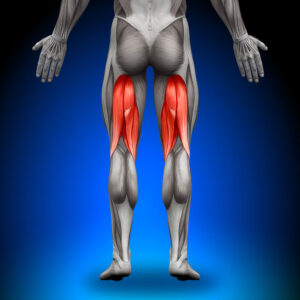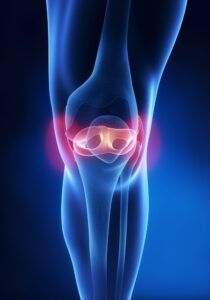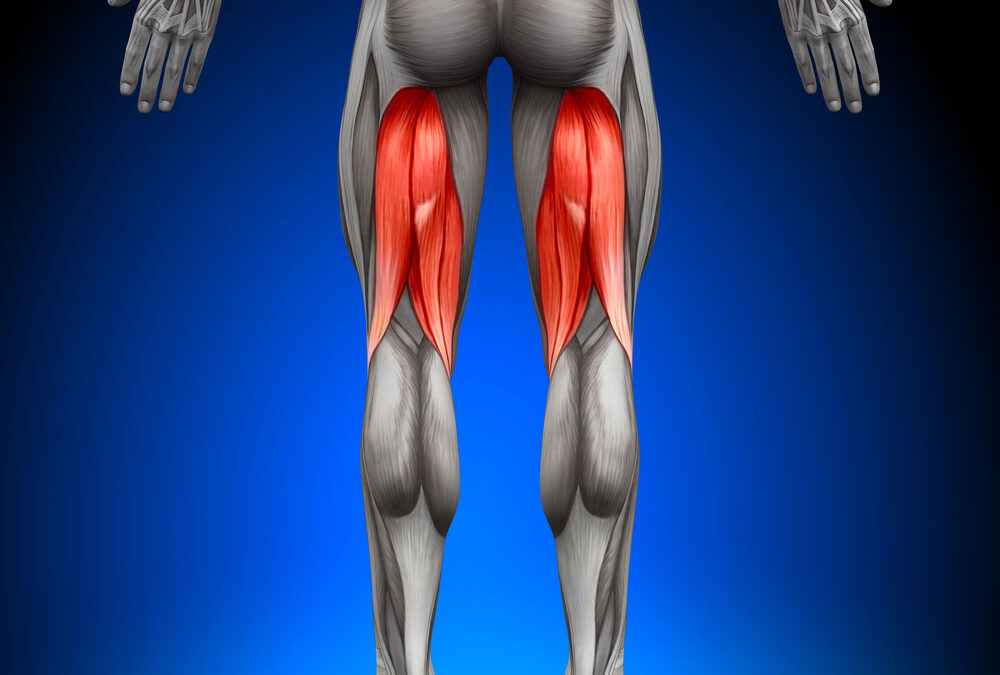In the locker rooms and on the field—that’s where you’ll find the sports medicine experts from the Chicago Center for Orthopedics (CCO) at Weiss. As the exclusive medical provider for the Chicago Sport & Social Club, and several professional, collegiate, and high school sports teams, our specialists have extensive experience working with young athletes—and they frequently encounter overuse injuries.
Most sports injuries can be divided into either acute injuries or overuse injuries. Acute injuries are those that occur in a single, traumatic instance, such as a sudden muscle strain, fracture, or dislocation. Overuse injuries are those that occur over time, from repeated stress or strain. When we exercise, we put our body through physical stress—which is actually good for our health, helping to strengthen bones, muscles, and ligaments. The process that our body uses to breakdown and repair tissue can become unbalanced if tissue isn’t repaired as fast as it is broken down, leading to overuse injury.
Young adult athletes may experience a number of overuse injuries, Here are a few common ones.
Hamstring Tendonitis:
 The pain of hamstring tendonitis can seem to come on suddenly, but it is actually the result of overuse, an inflammation of the soft tissues connecting the muscles in the back of the thigh to the knee, pelvis, and lower legs. You may feel sharp or burning pain in the back of the legs, aching or throbbing, or muscle weakness, with symptoms worse after exercise or long periods of inactivity. Hamstring tendonitis can be common especially in young runners and basketball players.
The pain of hamstring tendonitis can seem to come on suddenly, but it is actually the result of overuse, an inflammation of the soft tissues connecting the muscles in the back of the thigh to the knee, pelvis, and lower legs. You may feel sharp or burning pain in the back of the legs, aching or throbbing, or muscle weakness, with symptoms worse after exercise or long periods of inactivity. Hamstring tendonitis can be common especially in young runners and basketball players.
Fortunately, if treated properly, hamstring tendonitis doesn’t have to sideline you for long. You may be able to return to regular activity in a week, following a few days of rest, ice, elevation and compression (RICE). But if the pain persists, it’s important to seek the help of a physician, who may want to do X-rays, or an MRI, to diagnose the injury. Sometimes, outpatient physical therapy may be needed to fully recover.
Kneecap Pain:
“Patellofemoral pain syndrome” is a mouthful, but what it boils down to is something many young adult athletes may recognize: kneecap pain. This is a common sports overuse injury that causes pressure or friction on the cartilage behind the kneecap. Sports with a lot of jumping or squatting—such as volleyball and basketball—can be culprits for this overuse injury. Runners, especially long-distance runners, also may experience this pain.
In order to properly treat kneecap pain in young adult athletes, it’s important to receive a correct diagnosis, as its origin can be anything from flat feet to tight muscles in the hips, hamstring, or quadriceps.
With any acute or persistent kneecap pain, a good first step is to consult with a sports medicine specialist. The sports medicine experts at Weiss have extensive experience with common kneecap problems and can help young athletes get the diagnosis and treatment they need.
ACL and Meniscus Injuries:
 The meniscus is a C-shaped cartilage in the knee joint, supporting the inside and outside of the knee, stabilizing the knee and absorbing shock. When the meniscus is damaged with an overuse injury in a young adult athlete, severe knee pain can result, and arthritis can develop later in life. Tears in the meniscus can be the result of acute injury, or can occur gradually, as overuse injuries.
The meniscus is a C-shaped cartilage in the knee joint, supporting the inside and outside of the knee, stabilizing the knee and absorbing shock. When the meniscus is damaged with an overuse injury in a young adult athlete, severe knee pain can result, and arthritis can develop later in life. Tears in the meniscus can be the result of acute injury, or can occur gradually, as overuse injuries.
The anterior cruciate ligament (ACL) is an important ligament that helps stabilize the knee joint. While ACL tears are generally seen as an acute trauma, from a single, sudden or forceful movement, rather than an overuse injury, a recent study published in the American Journal of Sports Medicine suggests that damage can actually accrue in the ACL from overuse, in a process which leads to a tear.
Both meniscus overuse injuries and ACL injuries require a visit to a doctor, and the sports medicine experts at the CCO have extensive experience treating these injuries in young adults.
More Overuse Injuries Seen in Young Adult Athletes:
- Elbow overuse injuries: Ulnar collateral ligament (UCL) reconstruction, also called Tommy John surgery is a common surgery among collegiate and professional athletes, especially among baseball players. The CCO has been the medical provider for professional minor league baseball teams, and several collegiate teams treating a number of young athletes with arm and elbow overuse injuries.
- Shoulder overuse injuries: Some sports that place repetitive stress on the shoulder, such as sports with overhead throwing, or swimming, can lead to shoulder overuse injuries, including tendonitis, strains, and tears.
Athletes Treating Athletes
One of the advantages of consulting with the sports medicine specialists in the CCO Sports Medicine program at Weiss is that many of the providers aren’t just experts at treating athletes—they are athletes themselves.
Jeannette Kelly, D.O., is a non-surgical, osteopathic sports medicine physician who takes a holistic approach to medicine, embracing osteopathic philosophies, board-certified in Family Medicine and in Sports Medicine. She also serves as the team doctor for several high school and college sports teams. An athlete as well, Dr. Kelly participates in organized sports and endurance activities and finds these experiences to be beneficial in serving her patients.
Preston Wolin, M.D., is the Medical Director of Sports Medicine for CCO, and is a dedicated advocate for the prevention and proper treatment of overuse injuries in young adult athletes. Dr. Wolin is a founding member of the Illinois State High School Sports Medicine Advisory Committee, and has been Vice President of the Conference USA Medical Committee, and a consultant to the National Strength and Conditioning Association, as well as serving in the past as a team doctor for DePaul University, Loyola University, University of Illinois at Chicago, the Chicago Fire (Major League Soccer), United States Soccer National Men’s and Women’s Teams, and the Windy City Thunderbolts, among other teams.
If you want healthcare providers who share your passion for the game and have specialized expertise in helping you determine if your “no pain, no gain” workout is actually leading to overuse injuries—come meet the Sports Medicine team at the Chicago Center for Orthopedics at Weiss. Learn more or schedule an appointment in our orthopedic clinic today.

